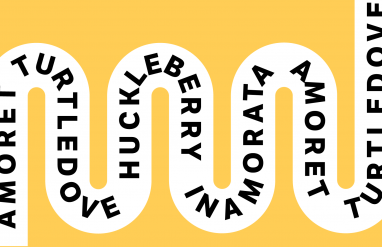“What do you plan to do with your life?” It’s one of those big, intimidating questions that people tend to ask all the time when they find out you’re graduating high school or college. One minute you’re eating a piece of graduation cake and enjoying the relief of having no homework, and then suddenly all of your relatives are staring at you, waiting for you to walk them point-by-point through a map of the next five years.
When you’re in this situation, it might be tempting to scream and run away as soon as they ask the question. Unfortunately, that kind of behavior is generally frowned upon. But there are ways to answer the question that take some of the pressure off of you, make the situation less awkward, and help you navigate the conversation with ease. Here are nine different approaches you can take when someone asks what you’re doing with your future.
1. Shorten the time frame.
You may not have your long-term future mapped out (you aren’t alone!), but you might have plans coming up this summer or even just for the next semester. Talk about those more immediate plans instead. When people ask what you’re up to after graduation, they generally just want to know what the next step is. It’s totally okay to limit your answer to the next few months. Try an answer like:
- I’m going camping with some friends this summer before I start my job search.
- I’m finishing up my prerequisites at the community college while I decide on a university.
2. Talk about your passions.
You don’t have to focus solely on accomplishments, job offers, or acceptance letters when someone asks about the future. Instead, talk about what you’re passionate about and the kinds of work or study you’d like to do in the following years. Try a phrase like:
- I’m really interested in [subject], so I’m considering options related to that.
- I know someone who works in [career field], and I really want to learn more about it.
⚡️ Find inspiration as you enter the next chapter of life with these motivating quotes from memorable commencement speeches.
If you got an exciting new job or acceptance into a dream school, that’s a great thing to share. If you’re still working towards your big goals, talk about something coming up on the horizon of your life that makes you really excited. Maybe it’s a trip you’re taking, a summer internship, tours of different schools, or even some interviews with various companies that you’re really interested in. Allow others to share in the excitement!
4. Ask for advice.
Graduation is the start of a new chapter in life, and everyone who’s gone through that transition had to make important decisions about the future. When someone asks about your future, try asking them how they handled some of those big decisions. People love to talk about their own lives and offer advice. They might even have good suggestions on different steps to take that you hadn’t thought about yet. Say:
- I’m still deciding on my next step. What did you do when you were my age?
- I have two options I’m really excited about. Which one would you pick?
5. Use humor.
Let’s be honest: this is a tricky question to answer, and it can make you feel like you’re being put on the spot. If it makes you more comfortable, lighten the mood by injecting some humor into the conversation. Humor can be a great way to deflect when you feel like someone is judging your responses, and it’s also an easy way to change the subject if you’d rather avoid the topic entirely. Try something like:
- Well, my first commitment is catching up on all the TV shows I missed this semester. What about you?
- You mean to tell me there’s more work after graduation?
6. Focus on mental health.
It’s normal to need some breathing room between big life changes, especially when a part of your academic life took place during a pandemic! If you’re taking some time off, using the next few months to relax and regroup, or just taking your time while you consider different options, it’s OK to say that. It can be as simple as:
- Finishing school took a lot of work, so I’m taking some time to consider my next steps.
- I’m taking some time off to reset, so I’m fresh for my next opportunities.
7. Turn the question around.
If being asked about your future feels like an interrogation, invite the other person to share their future plans as well. Making the question more conversational can help ease any tension you might feel or even change the subject if that’s what you’re aiming for. When there’s more of a back-and-forth happening, it won’t feel so much like you’re sitting in the hot seat. You could say:
- I have a few trips lined up and then I’m thinking about doing [x]. What do you have coming up this year?
- I’m thinking about [X], but haven’t decided. What have you been up to?
8. Talk about the big picture.
You may not know exactly what you want to do next, but you likely have some ideas about what you want your life to look like in the future. Go big! Talk about your overarching goals and what really makes you tick. You’re working towards something, even if you don’t know every single step along the path yet. You might say something like:
- I’d like to work towards a career in publishing.
- I want to open my own business one day, so I’m hoping to major in business management or economics.
- I’m really focused on trying new things and honing in on the right career for myself.
9. Challenge expectations.
When people ask you about the future, they’re often expecting you to brag about a new job or school you’ll be attending, but jobs and school aren’t the only things you’re allowed to be proud of. Maybe you’re prioritizing volunteer opportunities, personal enrichment, time with family and friends, or even just the freedom of having finally graduated. You get to decide what to focus on when you answer this question, even if it doesn’t follow the typical script. Take advantage of that and steer the conversation towards what makes you tick.
- School kept me so busy that I’m really looking forward to spending time with my friends and family over the next few months.
- I’m planning on grad school later on, but in the meantime I’m spending a lot of time volunteering with [organization].
- I haven’t made a final decision about work yet, but I’m really excited to figure out what’s next.













